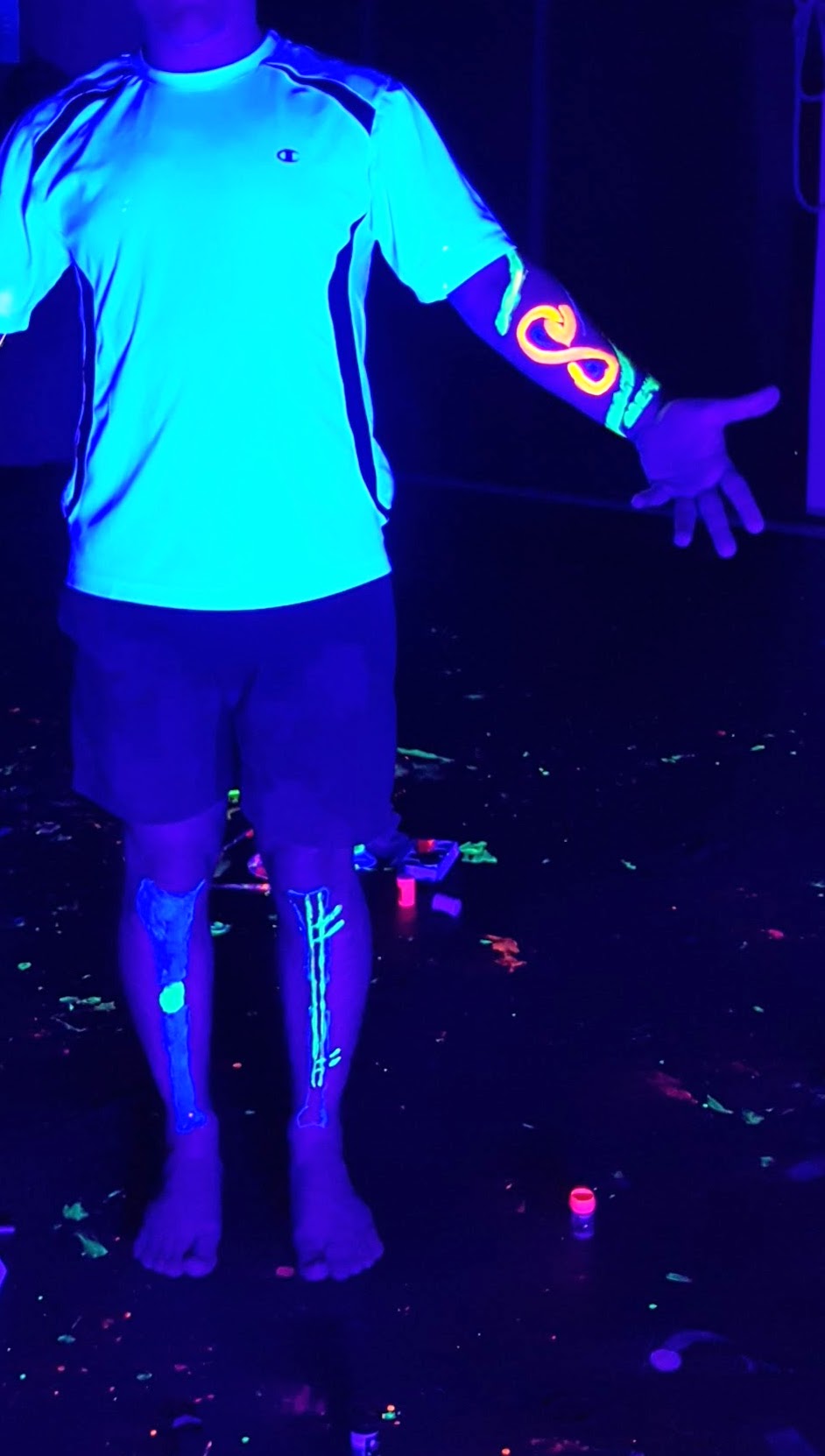T minus one week till my operation.
Leg lengthening is an expensive surgery, especially if you want it done with the safest doctors. As of spring 2018, you're looking at $90k for bilateral femur lengthening with Dr. Paley, and $180k for quadrilateral (tibias+femurs). No insurance will cover it, since it's cosmetic. Insurance might cover some ancillary expenses like medicines or PT or treatment of complications, but you shouldn't bank on that. Also for complications, Paley recommend budgeting $30k extra. Then there's the cost of living. $$$ adds up.
How do people pay for the lengthening surgery?
From what I've seen in the LL forum, there are four categories:
- Those lucky enough to be sponsored by their parents. Which implies a second kind of luck - to be young when you do CLL. The younger you are, the faster and less painful the recovery.
- The self-made. Some became millionaires by writing apps; others allegedly bought cryptocurrencies at the right time.
- Those who have been saving for years.
- Those who get loans.
None of this is financial advice; just my experience.
Getting a loan
This is the route I took. The reason is simple: the value of $100k right now if far higher than the value of $140k in seven years. The difference, $40k, is the interest - the cost of the loan. Rather than save for seven years and then have the surgery, I'd rather have it now (when I'm younger and recover better) and pay it back later. As you age, your income level tends to increase. Plus, being 10cm taller is correlated with an increase in income of about $2k/year for men. Not much compared to the increase in income that will probably come from the confidence of having worked so hard to become taller. But the point is that having a loan to pay is a good motivator, and being taller is a good reminder that it was worth taking the loan.
Another way to look at this decision is that you have two options:
- Wait/work for years to save up the entire cost of the procedure + ancillary expenses and then have it years later and suddenly run out of money at the end of your recovery (unless you save up even more to sustain yourself for a few months after that as you'll be looking for new sources of income)
- Or take a loan, have the surgery right now when you're younger and recover better and don't have as many obligations (family, career), and pay back the loans slowly over time. Being taller is likely to help you get a better paying job, or advance faster in your career - through increased self-confidence as well as employers' heightism.
Fortunately, in the US at least, there are many online personal loan providers, who give you loan for anything you want, without asking for documentation for the reason. You need to submit your identity details, proof of income, and some other paperwork, depending on the provider, but the process is relatively simple and getting the money in your bank account can take from a few days to a couple weeks.
Beware that some charge an "origination fee" - a fixed cost to give you the loan. Try to avoid those.
Top online personal loan providers in the US
After applying for loans with the top 8 online providers in the US, here are the best.
Citizens One
- Best APR - 8.74% for a 5-year $50k loan. No origination fee. Repayment ~$1020/mo.
- Only the minimum verification necessary: ID and income
- Very fast - approved next day, money in the bank the next
SoFi
- Largest amount: $100k, 7 years, ~10% APR, repayment ~$1670/mo
- Somewhat onerous process, took almost a month
- Less than competent staff who misplaced my documentation
- Requires proof of residence with a utility bill
Earnest
- $50k, 3 years, fixed APR ~12.5%, credit cost ~$10k, repayment $1,670/mo, no origination fee
- Reasonable verification procedure, including a phone call
Upgrade
- $30k, 5yr, $660/mo, interest 11.5%/yr, APR 13.76%, credit cost $11k
- They charge a $1500 origination fee out of the $30k
- Approved 2 days later
- No phone verification
Lending Club
- They offered only $40k for 5 years, while the maximum is $50k.
- 6% origination fee
- They rejected me because I got on disability leave and didn't have an income on the last paystub (despite steady income for the past two years).
Lightstream
- Up to $100k
- Next day decision
- ...but they rejected me
Keep in in mind that this comparison is as fair as it can be. I'm the same person, with the same income, who applied to all these institutions in Feb 2018. This is a real review, not the sort that sites like Nerdwallet do by "sending sample applications".
OK, so these are the best online loan providers in the US right now. See if your bank / credit union can beat their APRs. CreditKarma, Nerdwallet and similar sites might recommend others.
Note - stay away from Upstart at all costs. Not only do they have the worst APR (they quoted me 20%) but they also have the most ridiculous verification process - photos of my university diploma from 15 years ago, and a video of me holding up my ID next to my face stating why I'm asking for the loan and that I understand I need to pay it back. I was tempted to send a video holding up my Citizens One loan terms, stating that Upstart can fuck off.
Recovering the costs
If you're a US tax person, you may get a tax deduction for a lot of ancillary costs associated with the surgery - though not for the surgery itself, since it's a cosmetic procedure. The IRS has pretty detailed guidance about this in Publication 502. Many items are deductible, some are not, and some are glaring omissions, such as massage, or whether lodging expenses related to cosmetic procedures, are deductible. The expenses must exceed 7.5% of your Annual Gross Income - which is pretty likely to happen for the lodging costs alone.
Here's what I dug out. Remember, this is not tax advice. Also, this is a silly disclaimer, because if one of use LL-ers figures out how to properly file for these deductions, we can all do the same, assuming we had the same circumstances, so the "consult your tax attorney" admonishment is just FUD. Anyway, here's what the IRS says you can and can't deduct, that may pertain to leg lengthening. The biggest costs are:
- Physical therapy (US$13,500 - $21,000)
- Lodging (I paid $11,000 for 3 months in a hotel room in West Palm Beach, but only $100/night can be deducted)
- Trips/transportation
So, straight from the IRS:
Cosmetic Surgery
Generally, you can't include in medical expenses the amount you pay for cosmetic surgery. This includes any procedure that is directed at improving the patient's appearance and doesn't meaningfully promote the proper function of the body or prevent or treat illness or disease. You generally can't include in medical expenses the amount you pay for procedures such as face lifts, hair transplants, hair removal (electrolysis), and liposuction.
You can include in medical expenses the amount you pay for cosmetic surgery if it is necessary to improve a deformity arising from, or directly related to, a congenital abnormality, a personal injury resulting from an accident or trauma, or a disfiguring disease.
Hospital Services
You can include in medical expenses amounts you pay for the cost of inpatient care at a hospital or similar institution if a principal reason for being there is to receive medical care. This includes amounts paid for meals and lodging.
Lodging
You can include in medical expenses the cost of meals and lodging at a hospital or similar institution if a principal reason for being there is to receive medical care. [...]
You may be able to include in medical expenses the cost of lodging not provided in a hospital or similar institution. You can include the cost of such lodging while away from home if all of the following requirements are met.
- The lodging is primarily for and essential to medical care.
- The medical care is provided by a doctor in a licensed hospital or in a medical care facility related to, or the equivalent of, a licensed hospital.
- The lodging isn't lavish or extravagant under the circumstances.
- There is no significant element of personal pleasure, recreation, or vacation in the travel away from home.
The amount you include in medical expenses for lodging can't be more than $50 for each night for each person. You can include lodging for a person traveling with the person receiving the medical care. For example, if a parent is traveling with a sick child, up to $100 per night can be included as a medical expense for lodging. Meals aren't included.
Don't include the cost of lodging while away from home for medical treatment if that treatment isn't received from a doctor in a licensed hospital or in a medical care facility related to, or the equivalent of, a licensed hospital or if that lodging isn't primarily for or essential to the medical care received.
Trips
You can include in medical expenses amounts you pay for transportation to another city if the trip is primarily for, and essential to, receiving medical services. You may be able to include up to $50 for each night for each person. You can include lodging for a person traveling with the person receiving the medical care. For example, if a parent is traveling with a sick child, up to $100 per night can be included as a medical expense for lodging. Meals aren't included.
Transportation
You can include in medical expenses amounts paid for transportation primarily for, and essential to, medical care.
You can include:
- Bus, taxi, train, or plane fares or ambulance service;
- Transportation expenses of a parent who must go with a child who needs medical care;
- Transportation expenses of a nurse or other person who can give injections, medications, or other treatment required by a patient who is traveling to get medical care and is unable to travel alone
Crutches
You can include in medical expenses the amount you pay to buy or rent crutches.
Wheelchair
You can include in medical expenses the amounts you pay for a wheelchair used for the relief of a sickness or disability. The cost of operating and maintaining the wheelchair is also a medical expense.
Recordkeeping. You should keep records of your medical and dental expenses to support your deduction. Don't send these records with your paper return.
Credit goes to LLF member Purushrottam for starting to look into this. He called the IRS and apparently was told that yes, you can deduct the hotel costs, even though the procedure was leg lengthening. It's unclear whether the IRS agent on the phone understood that the leg lengthening was purely cosmetic. See this thread for possible updates.
Also, if you live in California, you can get some state disability benefits. Make sure to apply early - there's a deadline of 49 days since the disability started, and the application process can take a really long time if the Paley Institute still hasn't managed to register online with the edd.ca.gov.
Image source: WSJ

